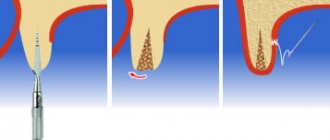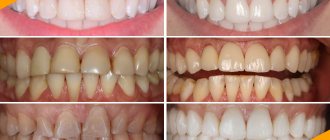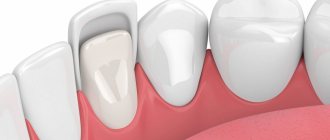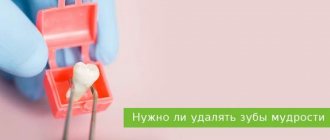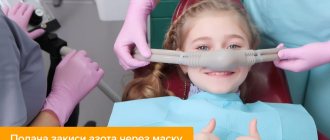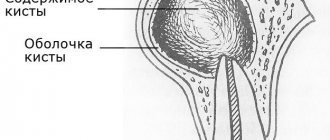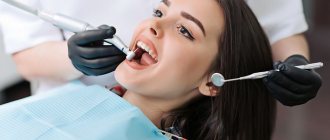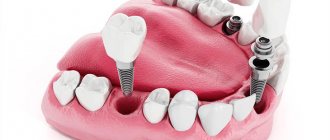Before surgery, it is necessary to carry out professional oral hygiene.
If the operation is performed with an anesthesiologist, you must come with an accompanying person, or the operation will be cancelled.
Recommendations for surgical treatment
After surgery, you may experience pain, which will go away as the tissue heals. Postoperative swelling or hematoma can also occur in areas adjacent to the surgical site, which is a natural consequence of surgery. There may be a slight increase in body temperature.
Please follow our recommendations!
Why do you need to get tested?
Based on the state of the blood, you can objectively assess the actual state of the body and calculate possible risks during surgical procedures. Taking tests helps the doctor confirm possible assumptions about common diagnoses or notice something new that may affect the course of the operation.
There are various types of blood or urine tests that can help identify dangerous pathologies for the body. For example, the level of AST and ALT enzymes may indicate cardiovascular diseases and a previous heart attack. Any surgical interventions are contraindicated within 6 months after myocardial infarction.
For women, it is important to pay attention to thyroid hormone levels and parathyroid hormone, as they reflect the activity of calcium metabolism. Based on these tests, it can be concluded that osteoporosis is present. Often, implantation is not indicated for this disease due to deterioration of the bone tissue.
Another important indicator is blood sugar level. Values greater than 10 mmol/l suggest the presence of diabetes mellitus. For people with a confirmed diagnosis, glucose values should also not exceed 10 mmol/l, because this disease affects the implant’s healing and increases the risk of its rejection and the occurrence of an inadequate immune system response.
In addition to blood counts, doctors prescribe tests to detect various infections. This is important for both the patient and the doctor to ensure the safety of the surgical procedure for all involved. Chronic infections distort the immune response and can cause complications.
Before surgery
- Prepare an ice pack at home.
- On the day of surgery, eat a light meal 2-3 hours before your scheduled time.
- The day before surgery, the consumption of alcoholic beverages is strictly prohibited.
- Be sure to inform your dentist about all the individual characteristics of your body and any allergic reactions, in order to accurately select an anesthetic that is safe for you.
- Visit the toilet before surgery.
- It is better to come to the operation in loose clothes without a collar.
After operation
— To avoid severe swelling and bleeding during the first 24 hours after surgery, it is necessary to apply an ice pack to the cheek on the side of the operation for 15-20 minutes with breaks of 30-40 minutes.
- Rinsing your mouth when bleeding is unacceptable!
— After sinus lift surgery, you should not drink through a straw, blow your nose vigorously, or puff out your cheeks.
- To reduce the likelihood of nosebleeds (after upper jaw surgery) and reduce post-operative swelling, you should sleep with your head elevated (add an extra pillow) for several days after surgery.
— It is not recommended to use tobacco products 1 week before and 2 weeks after surgery.
— It is prohibited to drive a car on the day of surgery with premedication.
- It is not recommended to eat until the anesthetic wears off. In the first days after surgery, it is recommended to eat soft, non-hot foods.
— It is not recommended to drink alcohol, coffee, or strong tea to avoid the negative effects of these drinks on blood circulation and wound healing.
Additional Tips
Avoid lifting heavy objects, bending over, playing sports, or taking hot baths for 5 to 7 days after surgery.
Within a few days, performance and the ability to drive may be reduced.
Remember to take medications prescribed by your dental surgeon after surgery.
We kindly ask you!
Appear for examination and removal of stitches 5-7 days after surgery, in agreement with your surgeon. You must immediately notify your surgeon or clinic administrator of any changes in your health.
Recommendations for caring for dental implants
The service life of the implant depends on:
- The correctness of the surgical and prosthetic stages carried out in the dental clinic.
- The patient's compliance with the recommendations given by the dentist immediately in the postoperative period and the period after implant prosthetics.
- Careful hygienic care of the “implant-crown” structure.
- Blood supply to bone tissue and gums in the area of implantation. (Smoking cigars and cigarettes has a very, very negative effect on peripheral blood circulation, which can even interfere with implant implantation.!!!)
Initial appointment and consultation before dental implantation
At the first appointment, a competent specialist can interview the patient and conduct an initial diagnosis. It is very important from the very beginning to find out about the patient’s health status, the presence of chronic diseases or conditions in the acute stage, and be sure to obtain all the information about the medications taken.
In the questionnaire that patients fill out before surgery, it is necessary to honestly answer questions and indicate chronic pathologies, as well as allergies, if any.
These data will influence the choice of treatment tactics and the drugs used, in particular the choice of anesthetic.
In some cases, the doctor may prescribe an additional examination in the form of a general blood test.
Why is it important? Because many diseases and borderline health conditions affect metabolism, and this in turn affects the healing process, which is the most important stage in implantation. Future prosthetics and the service life of crowns depend on the engraftment of the titanium root.
Oral hygiene
Regardless of the size or number of implants, they must be cared for as if they were regular teeth. Brush and floss your dental implants twice a day. Use special fluffy dental floss (for example, Oral-B superfloss or ultrafloss).
When brushing your teeth, pay special attention to the back teeth and between teeth. Use a soft or medium-hard brush. In addition, use an irrigator for additional deep cleaning of the interdental spaces with water irrigation.
There are special brushes that can be used to clean interdental spaces - dental brushes. Ask your dentist about them - in some cases they are not recommended.
Visit your dental hygienist twice a year; they are the only ones who can clean your implants as thoroughly as necessary. Regular visits to the dentist are very important. Your dentist will check the condition of your gums, jaws and implants.
Smoking is bad for your health and for dental implants, too. To have a good prognosis for the lifespan of your implants, it would be a good idea if you stopped smoking.
Dental treatment for patients with cardiac diseases
The refusal of dentists in most regular clinics to treat patients with cardiac diseases is primarily due to the doctor’s own fear that something might happen to the patient during treatment. Secondly, local anesthetic drugs used in dentistry contain substances that affect the heart, which is even more alarming and discourages the dentist from undertaking dental treatment in such patients. Thirdly, a number of dental procedures require the abolition of a number of serious medications needed by these patients in connection with the main diagnosis. Well, besides, in a regular dental clinic there is no way to monitor the current state of the heart (carry out cardiac monitoring, control blood pressure, etc.) and there are no anesthesiologists who could provide the necessary assistance in case of cardiac complications...
It is for these reasons that if cardiac patients receive dental care, it is not on an outpatient basis, but in a hospital setting. Of course, in severe cases this is the only way, and it is absolutely justified. But a number of diseases, in particular, some heart defects, are formal in nature and do not pose a threat to life.
In children, heart disease is divided into two important categories: congenital, that is, appearing in utero as a result of improper formation of internal organs, and acquired, resulting from the influence of some other factors after the birth of the baby. Parents of such children often hear the diagnosis of “heart disease.” What it is? A heart defect is the presence of its structural abnormalities. Congenital heart defects (CHDs) may include abnormalities of heart tissue (particularly muscle tissue) and conduction system disorders.
In turn, congenital heart defects with impaired muscle tissue development are divided into pale and blue. In simple terms, if muscle tissue development is impaired, for one reason or another, blood flows “in the wrong direction.” With palliditis, for example, a lot of blood flows to the lungs, where high pressure occurs, called pulmonary hypertension. Moreover, the higher the pressure, the greater the danger any dental interventions pose to patients. But it may also be that the pressure in the lungs is normal or only slightly elevated. In this case, the dentist can calmly begin treatment - both under anesthesia (for children under 3 years old) and without it (for children over 3 years old who sit quietly in a chair and the volume of treatment is not too large) . If the dentist or parents are concerned about the condition of a small patient, then an anesthesiologist will monitor his current condition. Depending on the degree of cardiac damage and the scope of treatment, intravenous sedation and ZACS may also be performed.
With blue defects, the blood bypasses the lungs, and the pulmonary blood flow, on the contrary, is depleted. Consequently, there is little oxygen in the blood (the so-called arterial blood). These children have bluish skin – a very specific symptom for them. They cannot run and move actively, like others of their age, because the body does not have enough oxygen, and they simply begin to suffocate. Depending on the severity of the defect and cyanosis, such children, however, still need to have their teeth treated. Of course, the situation with them is more complicated. As a rule, they require further intensive care monitoring, which means hospitalization.
It has long been noted that children suffering from blue heart defects are superior to their peers in terms of intellectual development. The fact is that due to the inability to run and play with other children, they read and study a lot and are smart beyond their years.
A separate group of congenital heart diseases are those that have congenital rhythm disturbances. The most common cardiac arrhythmia is a change in heart rate. It can be either very slow or very fast. Anesthesiologists practicing in dental clinics work with these patients quite confidently and recommend dentists to take them for treatment.
But in any case, before deciding whether to undertake treatment or not, whether anesthesia or sedation is necessary, or whether cardiac monitoring is required during treatment even without anesthesia, a consultation with an anesthesiologist is necessary. Of course, the dentist cannot take on such responsibility.
As we said, there are also a number of diagnoses that in some cases are either formal in nature or often not even identified by specialists: that is, people live their entire lives without even suspecting that they have a cardiac diagnosis. This is due to the fact that these ailments do not cause pulmonary hypertension and, in general, do not in any way affect the condition and well-being of a person and his quality of life. Such diagnoses include: a patent foramen ovale and a small atrial septal defect. They are not an absolute contraindication for dental treatment.
There are two more fairly common diagnoses that most often do not cause concern to anesthesiologists in outpatient practice: mitral valve prolapse at a certain stage and patent ductus arteriosus in the absence of pulmonary hypertension. But before deciding whether to take such a patient for treatment on an outpatient basis, it is important to provide the anesthesiologist with the results of a number of studies: echography and ultrasound of the heart.
Acquired heart defects
Most often, PPP occurs at a young age. The main and most famous of them is rheumatism. This is a systemic disease that is bacterial in nature. In addition, for its occurrence there must be a genetic predisposition. After the body is infected with the microbe that causes rheumatism, years may pass before the disease manifests itself in the heart. That is why most often adults suffering from rheumatism go to dentists, and much less often children.
However, regardless of the patient’s age, sanitation of the oral cavity - that is, treatment and, if necessary, removal of diseased teeth - is a prerequisite for patients with rheumatism. And the first rule when treating teeth in such patients is a mandatory consultation with a dentist, and in fact, joint work with the treating cardiologist: only he can decide whether oral sanitation can be carried out right now. After all, it depends on what stage the rheumatic process is at, whether an extracted (or even treated) tooth will become a reason for its exacerbation and aggravation of the situation. And of course, tooth extraction (like any surgical intervention) should be accompanied by the prescription of two drugs - an antibiotic and an anti-inflammatory, which should also be prescribed by the treating cardiologist. The anesthesiologist, for his part, determines how possible dental treatment is on an outpatient basis with the current condition of the heart.
In our clinic, dental treatment of patients diagnosed with rheumatism begins only after the necessary examinations, blood tests and rheumatic tests and with the permission of specialists - rheumatologists and cardiologists, and only under the supervision of an anesthesiologist!
Examination before treatment
For our patients suffering from heart disease, before undergoing dental treatment - regardless of whether it will take place under anesthesia, sedation or under normal conditions - we are required to undergo a number of necessary tests that will help us assess the current condition of the heart and protect the patient as much as possible . So, if there is a heart defect, then Rudenta anesthesiologists most often prescribe the following examinations:
- blood coagulation analysis;
- ECG;
- Ultrasound of the heart;
- general blood analysis.
Also, according to indications and at the discretion of the anesthesiologist, additional studies may be prescribed. For example, a biochemical blood test reflecting liver and kidney function. Indeed, with rheumatism, impaired blood circulation leads to impaired kidney function. And in some cases, there is stagnation in the systemic circulation, then the liver takes on the role of a buffer. This causes a violation of the blood coagulation system. To avoid complications, the doctor needs to understand how certain medications will be eliminated from the body.
The Rudenta Clinic is focused on treating patients - both adults and children - with heart disease on an outpatient basis
Firstly, the presence in the clinic of experienced anesthesiologists with experience in cardiac surgery and cardiac intensive care (including in children's departments), as well as the necessary equipment and drugs, allows in many cases to treat cardiac patients on an outpatient basis. This allows the dentist and the patient to feel comfortable. In addition, the anesthesiologist is faced with a task in the event of a complication occurring during dental treatment - pain, rhythm disturbances, increased blood pressure, etc. - cope with this condition. Our clinic has everything necessary to carry out any resuscitation. Depending on the degree of heart damage, the extent of treatment, and the general physical and psychological condition of the patient, the anesthesiologist may use intravenous sedation and ZACS.
Secondly, the conditions of our clinic allow us to monitor the patient after completion of treatment for as long as necessary to avoid complications.
Thirdly, we have introduced a standard (by the way, this is a European standard that all dental clinics in the Old World adhere to): before starting dental treatment, we measure blood pressure for each of our patients (regardless of age and main diagnosis)! This is not only basic care, but also a logical and simple way to avoid even minimal risks of complications. It is by blood pressure readings that we can judge whether the patient is nervous, afraid to have dental treatment, etc. If the doctor deems it necessary, we can either cancel the treatment and reschedule it for another day, or carry it out under cardiac monitoring and supervision of an anesthesiologist.
Eating
Avoid chewing hard candy, ice, or other hard foods (such as hard chocolate or dry fish) as they may loosen or break the abutment screw.
Avoid foods such as caramel or toffee, as they may stick to the crown and cause the abutment screw to loosen.
Do not open bottles or crack nuts with your teeth for the same reasons.
Wear protective sports mouth guards when participating in sports and avoid direct blows to the face.
Refrain from grinding your teeth. If creaking occurs unintentionally or during sleep (bruxism), notify your dentist and he will make you a thin night guard.
The length of their service depends on the quality and regularity of care for implants.
Before and after implantation
Before surgery:
Prepare several days off after the date of the planned operation.
Do not smoke or reduce the number of cigarettes you smoke.
If you are sick on the eve of the operation, please notify the implantologist.
Ask your implantologist about the medications you will need immediately after surgery.
Patients suffering from compensated diabetes mellitus must follow a strict diet 2 weeks before surgery and 2 weeks after it.
Get a good night's sleep the night before surgery.
Make sure you are accompanied if you plan to undergo anesthesia, sedation or a complex operation, do not plan to be behind the wheel.
If you have herpetic rashes on the mucous membrane, the operation should be rescheduled.
After operation:
If you have had dental implants, you may experience some of the typical discomforts associated with any type of dental surgery. These may include:
- Swelling of the gums and face.
- Gum injury.
- Mobility of adjacent teeth.
- Pain at the implantation site.
- Minor bleeding.
- Bruises and bruises.
You may need painkillers and antibiotics. Follow the recommendations of the implantologist.
What must be observed after implantation:
- Brush your teeth with a soft brush before removing sutures
- Eat soft foods for 5-7 days. Do not eat hot, spicy or salty foods.
- Starting from the third day after surgery until the sutures are removed, you should rinse your mouth with a chlorhexidine solution twice a day (after brushing your teeth).
- Do not overheat in the sun or in a sauna.
- Do not engage in active sports.
- Do not smoke or reduce the number of cigarettes you smoke.
- Do not fly on an airplane, do not swim, do not dive for 2 weeks (especially important after sinus lift surgery).
- Do not blow your nose or sneeze with your mouth open (especially important after sinus lift surgery).
- If swelling, discomfort or other symptoms increase within a few days after surgery, or the temperature rises, contact your implant surgeon.
- After tooth extraction
- If you have had a tooth removed, you must take care of your oral cavity. By following certain recommendations, you will feel better and healing time will speed up.
What to take with you to the hospital?
You should be prepared to stay in the clinic for several days. Be practical and use common sense. Do not take valuables, fashionable clothes or large amounts of money with you. Bring a small bag with the essentials. You will need leg compression stockings, which help reduce the risk of blood clots during long surgery. This can include elastic bandages or special compression stockings. Immediately after the operation, to protect the sutures of the anterior abdominal wall, you will need to constantly wear a bandage - this is a special wide elastic belt that helps support the muscles of the anterior abdominal wall at times when there is strong pressure on it - when you stand up, cough, sit down or bend over. You will only be in bed for one or two days after surgery, after which you will be encouraged to get up and walk around. You may want to wear a robe or comfortable pajamas and slippers with non-slip soles. After surgery, for some time, a small amount of wound discharge may be released from the sutures, which, even through a sterile dressing, can stain clothing. Therefore, prepare two sets of clothes and do not take expensive or favorite things, as they may get damaged in the hospital.
Don't forget toiletries such as a toothbrush, toothpaste, comb, deodorant, perfume or cologne, they will help you feel more “human” after surgery. During surgery, patients should not wear contact lenses, so do not wear them on the day of surgery; instead, it is better to wear glasses and leave contact lenses for the period after surgery. Before the operation, give valuables and wallet to your family members, leave a small amount of money to pay for television or telephone. You may also benefit from a good book, some magazines or a craft kit to help pass the time during your final days in the clinic when you feel better.
If you regularly take any medications (for example, for high blood pressure or diabetes), be sure to take them with you. It is very important that you continue to take these medications until the day of surgery, unless your doctor prescribes something else.
Stopping bleeding:
To control bleeding, it is necessary to bite down on a gauze pad placed by the dentist in the oral cavity. The pressure promotes the formation of a blood clot in the socket. If you have heavy bleeding that has not stopped within an hour of tooth extraction, you should bite into a regular tea bag. Tannin in tea helps in the formation of blood clots. Hold the tampon or tea bag until the bleeding stops.
Additionally, cool the extraction area, apply a cold compress to the face in the area of tooth extraction for 10-15 minutes. at one o'clock. A slight bleeding on the first day after removal is normal.
Stages of implementation
Sanitation is carried out immediately before implantation. That is, the dentist already has the patient’s tests and the opinions of related specialists at his disposal. Professional rehabilitation takes place in four stages.
Preparatory step
The specialist determines the presence of tartar, caries, gum inflammation, and pathologies. At this stage, additional tests and studies may be prescribed.
Getting rid of tartar
Modern clinics use an ultrasonic scaler. It has a unique effect: it destroys tartar without affecting the enamel. Simultaneously with the laser, water pressure is supplied, which is necessary to wash away destroyed particles and cool the teeth. The procedure is considered painless and is usually performed without anesthesia. However, patients with hypersensitive teeth may be given pain medications.
Getting rid of plaque and roughness
The main task at this stage is to clean all the irregularities in the enamel. Experts use different methods. The most effective way is to use an air-abrasive system based on water and a special powder.
Surface polishing and grinding
The dentist selects a special paste (depending on the specific patient). With its help, the ideal smoothness of the enamel surface is achieved. The paste also has a protective effect: it protects against the appearance of tartar.
Important:
professional sanitation ensures a positive result of implantation only in conjunction with compliance with a number of recommendations. The patient must give up bad habits and a number of medications, balance his diet, and limit physical activity. And most importantly, it is necessary to maintain proper oral hygiene. It involves the use of toothpaste, floss and other products prescribed by the dentist.

